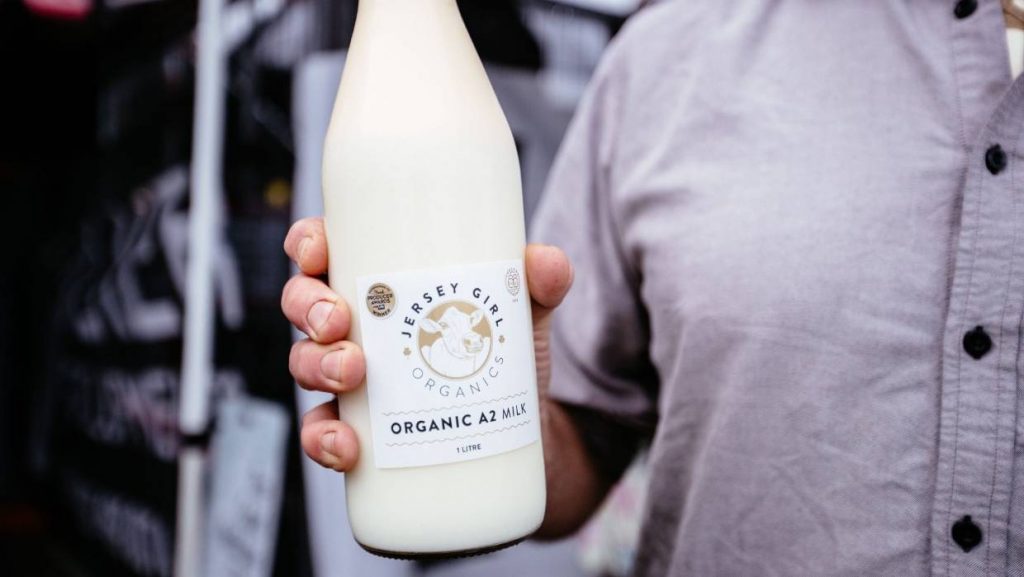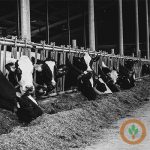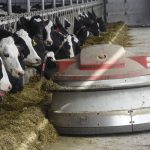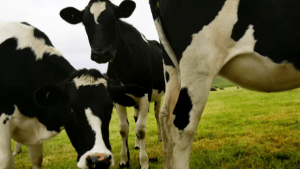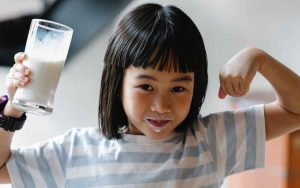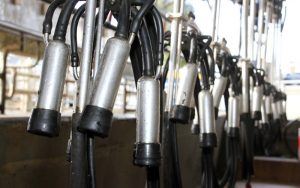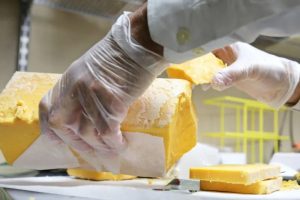
Some have seen sales of the white stuff more than triple in the last year to customers who buy and return glass bottles.
The resurgence suggests many New Zealanders would happily return to a time when leaving the glass milk bottles out to be refilled was the chore of Kiwi children.
ABIGAIL DOUGHERTY/STUFF
Grey Lynn Farmers Market in Auckland has a thriving refillable glass milk bottle initiative with milk supplied by Jersey Girls Organic.
But large-scale change is some way off yet as supermarkets are reluctant to use glass bottles due to the costs involved.
Grey Lynn Farmers Market in Auckland has a thriving refillable glass milk bottle initiative, with milk supplied by Jersey Girls Organic.
Market manager Carol Gunn said reusable milk bottles were becoming “really, really popular”.
Gunn said the popularity of glass bottles showed Kiwis were really trying to avoid plastic and packaging.
“This initiative aligns with the farmers markets ethos,” she said.
“It is really about zero waste…It’s a community thing, that’s what we are trying to foster. The milk itself is totally different from what you get in the supermarket.”
“We sell the bottles and customers bring it back clean. That way the Jersey Girls aren’t responsible for the cleaning of the bottles,” she said.
Milk glass bottles were not the only things customers re-used at the market.
Body care company PUK’eco took back its jars from customers and Lulu Spear, who sells cold pressed turmeric and ginger root with kawakawa, gave her customers a discount on her products if they brought back bottles.
In the early 1980s, refillable milk and soft drink bottles were collected and redistributed quite efficiently within local areas.
But transport costs of bottle collection and redistribution are now much greater than those of the one-trip disposable containers.
Statistics show the average New Zealander downs more than 100 litres of milk every year, resulting in more than 23,000 tonnes of plastic bottles to be dealt with annually.
Currently, glass bottles are limited to smaller, and independent initiatives because supermarkets and suppliers aren’t keen to take on the large cost.
Milk retailers Lewis Road, which uses 100 per cent recycled plastic, said it wanted to use glass bottles since day one, but because it has been so problematic and expensive with suppliers it hasn’t been viable.
However, Farro Fresh, a Kiwi-owned grocery chain of six stores, has been selling milk in glass bottles for two years.
Chief executive Bryce Howard said Farro has seen significant sales growth of over 300 per cent, year on year, for milk in glass bottles.
“This glass bottle return service is proving very popular as Farro customers find the service easy, great value and positive way to reduce plastic,” Howard said.
Happy Cow Milk Company, an environmentally-friendly dairy company, learned first hand how hard it would be to keep afloat a glass milk bottle business.
Founder Glen Herud was forced to close his Christchurch-based business down in March last year.
“You can’t just change the bottle, you have to change from the factory to the consumer. So there are loads are barriers,” he said.
But the founder hasn’t given up on his vision to create a real-life solution to reusable milk.
Herud is redesigning the whole company to reopen sometime this year, developing a business model that streamlines milk processing and selling.
“If we want reusable milk bottles, we need local farmer supplying the local market. That’s the only way it works in the economic supply chain.”
Ministry for the Environment said there were pros and cons to both glass and plastic milk bottles.
“Plastic milk bottles are currently recyclable and are easy to transport. Glass can be recycled over and over but it is heavier and may result in more transport related emissions,” a spokeswoman said.
“We are interested to learn more about initiatives that look at keeping resources in circulation for longer and represent a move away from the linear take, make, dispose model.”
